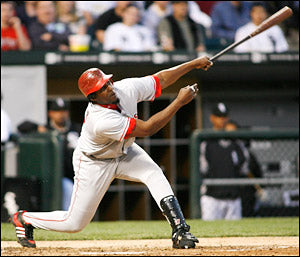There is an argument that goes on every day on social media amongst former players that today's players are actually worse than players of 20+ years ago.
Is that true?
How could that be?
We have advanced in every area of society over the last 2 decades, surely baseball players have advance also?
The truth is that players today are more talented than ever, but they do fall short in one key area of game play.
They lack the creative game play and problem solving skills of players that played in the decades before.
How though? Simple, We have robbed them of creative free play time
In the realm of youth sports development, there has long been a belief that structured coaching and training regimens are superior to unstructured free play.
Critics of free play suggest that it can lead to the formation of bad habits and slow the learning process. However, this conventional perspective overlooks the unique and significant role free play serves in fostering creativity, honing problem-solving abilities, and nurturing well-rounded athletes.
The Traditional Perspective and The Quest for Control
The long-held view of free play as less beneficial in organized sports often stems from a desire for control. Coaches and sports organizations typically aim for their players to adhere to specific techniques and strategies, convinced that such regimented approach yields superior performance.
This drive for control leads to continuous instruction and hands-on coaching, with the aim of guiding and managing players' development every step of the way.
The Consequences of Neglecting Free Play
However, a restrictive approach that limits free play and exploration can indeed be detrimental. Players might become excessively dependent on structured drills and directives, inhibiting their capacity to think independently and adjust to unexpected game situations.
In fact, the overemphasis on structured drills can risk producing athletes who, though technically proficient, lack critical thinking skills and the ability to make snap decisions. This approach can also curtail their chances to learn from mistakes—an integral part of any learning journey.
The Case for Free Play
It's essential to recognize the benefits of free play in youth sports development. Encouraging free play fosters an environment where young athletes are motivated to take risks, learn from their errors, and understand that making mistakes is a natural component of the learning journey.
It also nurtures a culture that prizes creativity and problem-solving, key elements that empower young athletes to reach their full potential, and mature into well-rounded individuals, both on and off the field.
Beyond the Field - Life Lessons from Sports
Youth sports development goes beyond preparing players for the game—it equips them with valuable life skills. The importance of taking risks, the ability to think unconventionally, and the capacity to innovate are all lessons learned through sports that are applicable to life at large.
Embracing free play, therefore, has a far-reaching impact, molding athletes who are not only talented but also resilient, adaptable, and capable of making unique contributions to the world.
Conclusion
The debate between structured coaching and free play is not about choosing one over the other. Instead, it's about achieving a balanced approach that combines the best aspects of both. By endorsing free play and incorporating it into organized sports, we're not just preparing athletes for their next game, we're preparing them for life.
We're fostering a generation of athletes who are not only technically skilled but are also resilient, adaptable, creative, and ready to make their unique mark in the world.








